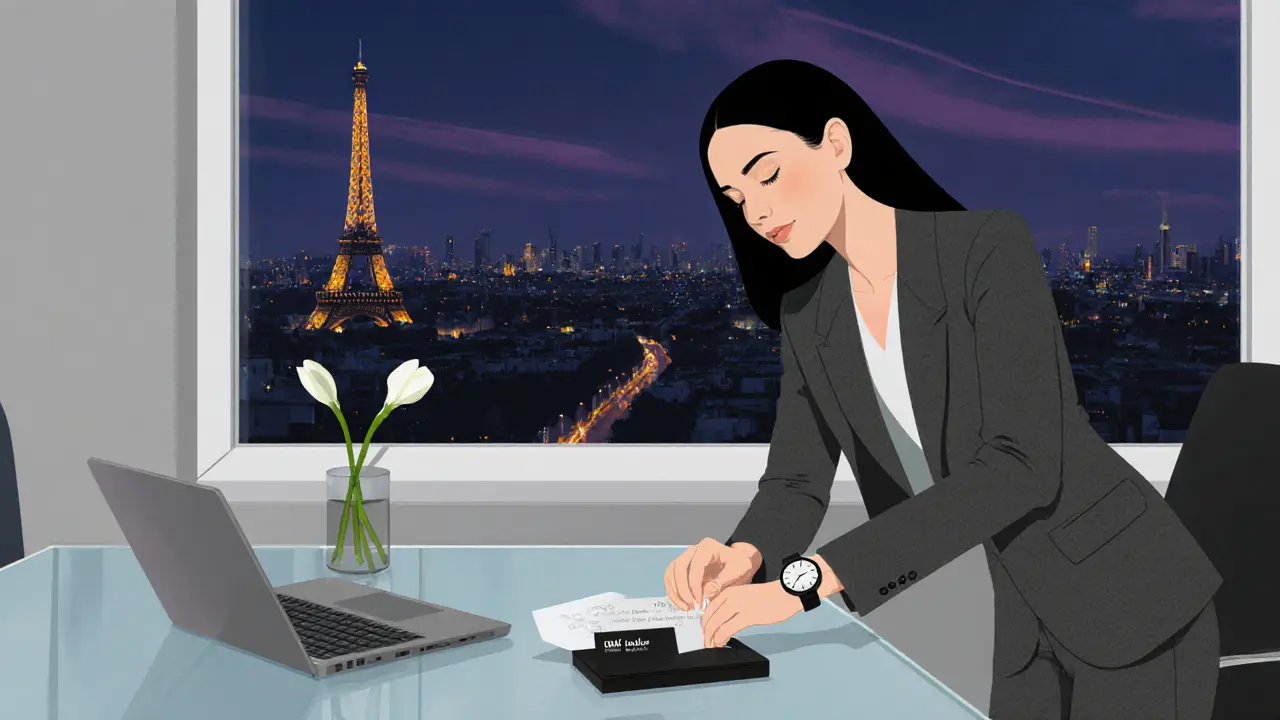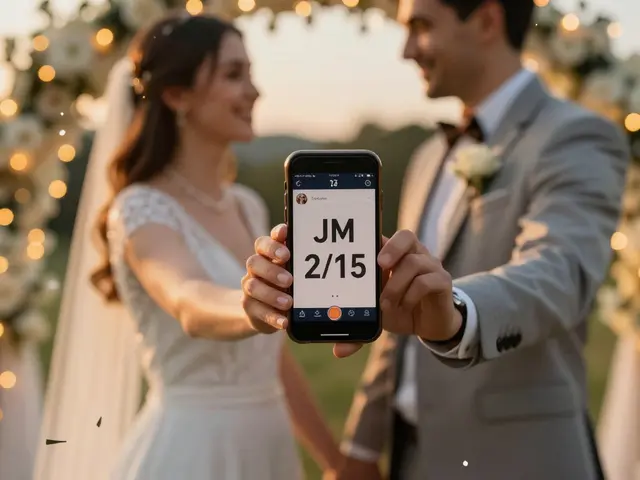
Imagine you’ve booked a crucial meeting in the City of Light, only to leave a bad impression because of a tiny cultural slip. It happens more often than you think, and the fallout can cost you a deal, a partnership, or even future invitations. This guide walks you through the essential moves you need to make - and the mistakes you must dodge - so your Paris meeting runs smoothly and leaves the right impression.
Understanding the French Business Culture
Before you step into a boardroom on the Rue de la Paix, grasp the bigger picture of Paris business meeting etiquette - a set of norms that reflect France’s respect for hierarchy, formality, and personal relationships. French professionals value competence, but they also cherish the subtleties of language and ceremony. The phrase “c’est la vie” isn’t just a shrug; it signals a balanced view of work and life that you’ll see in their approach to meetings.
Key traits of French business culture include:
- Respect for titles and seniority - address people as Madame or Monsieur followed by their last name unless invited to use first names.
- A preference for structured, well‑prepared presentations - they expect data, not just ideas.
- Politeness that can feel formal - “merci” and “s’il vous plaît” are used abundantly.
Understanding these underpinnings lets you anticipate how a French host will behave, making it easier to respond in kind.
Master the Greeting and Small Talk
First impressions hinge on the greeting. In France, a firm handshake accompanied by eye contact signals confidence. If you’re introduced to a senior executive, a brief, polite kiss on each cheek (known as "la bise") might be customary, but it’s safer to follow the lead of your host. When in doubt, a handshake works for everyone.
Small talk precedes the agenda. French colleagues often discuss culture, art, or current events before diving into business. A comment about a recent exhibition at the Louvre or the weather in Paris can break the ice, but avoid overly personal topics like salary or family planning unless the host steers the conversation there.
Micro‑skill tip: Use the phrase “Comment allez‑vous?” (How are you?) with a genuine tone. It shows you respect the language, even if you’re not fluent.
Timing and Punctuality Rules
Arriving on time is non‑negotiable. While some believe French people are relaxed about schedules, business meetings operate on strict punctuality. Arriving 5-10 minutes early is ideal; being late can be seen as disrespectful.
However, be prepared for the French punctualityculture, which sometimes includes a brief 5‑minute grace period before the formal agenda begins. Use that window to exchange pleasantries and settle in. If an unexpected delay occurs on your side, call your host immediately - a short apology in French ("Je suis désolé du retard") goes a long way.
Dress Code and Appearance
In Paris, fashion isn’t just an industry; it’s a national pride. Business attire leans toward classic, tailored looks. Men should wear a dark suit, crisp white shirt, and leather shoes. Women typically opt for a tailored dress, skirt suit, or pantsuit, paired with modest heels.
Avoid overly casual clothing like jeans or sneakers unless the meeting is explicitly marked as informal. Subtle accessories, such as a tasteful watch or a silk scarf, add a refined touch without drawing attention away from the discussion.
Remember: the goal is to appear polished while respecting the sophisticated aesthetic French professionals expect.

The Art of Gift Giving and Business Cards
Gift giving is not mandatory, but a small, thoughtful token can solidify goodwill. If you choose to bring a gift, select something that reflects your own culture - perhaps a premium tea blend from Manchester or a locally crafted notebook. Present the gift after the meeting concludes, not during, to avoid the impression of bribery.
Business cards are exchanged with a particular ritual. When you receive a card, take a moment to read it, then place it in a leather holder or a dedicated card case - never shove it into a pocket. This shows respect for the individual's identity and professional standing.
Use this phrasing when handing over your card: "Voici ma carte de visite" (Here is my business card). The card should be printed on high‑quality paper, double‑sided, and include both English and French versions of your contact information.
Dining Etiquette When the Meeting Moves to a Restaurant
Many Parisian business meetings transition to a meal. Dining etiquette here is a blend of culinary appreciation and social protocol. Wait for the host to signal the start of the meal - usually by saying "Bon appétit" - before you begin eating.
Key dining rules:
- Keep your hands visible, resting wrists on the edge of the table, not on your lap.
- Use the continental style of fork in the left hand and knife in the right; switch them after the first bite if you prefer the American style.
- Avoid ordering the most expensive item on the menu unless the host explicitly asks for your preference.
- When wine is served, wait for the host to take the first sip before you do.
If you’re unsure about a dish, politely ask the server for a description in English. Showing curiosity about French cuisine is usually appreciated.
Follow‑up and Continued Communication
After the meeting, a prompt follow‑up reinforces your professionalism. Send an email within 24 hours, thanking the participants and summarizing the main points. Use French salutations such as "Cordialement" or "Bien à vous" before signing off.
If you promised to send additional documents, attach them in the same email and reference the meeting’s date and location - “Le 4 octobre 2025 à Paris”. This level of detail demonstrates attentiveness and helps keep the conversation on track.
Maintain the relationship by occasionally sharing relevant industry news or a short note on a shared interest discussed during small talk. Consistency, not frequency, builds trust in the French business context.
Quick Reference: Do’s and Don’ts
| Do | Don’t |
|---|---|
| Arrive 5‑10 minutes early. | Show up on time or late without notice. |
| Use formal titles and polite language. | Address people by first name unless invited. |
| Dress in a tailored suit or professional dress. | Wear casual jeans or sportswear. |
| Offer a small cultural gift after the meeting. | Present gifts during the discussion. |
| Read the host’s wine and food choices before ordering. | Order the most expensive item without asking. |
| Follow up with a courteous email in French and English. | Delay follow‑up for more than 48 hours. |

Frequently Asked Questions
What is the proper way to greet a French executive?
Offer a firm handshake, make eye contact, and use "Bonjour, Monsieur/Madame" followed by their last name. If the executive initiates a cheek kiss, mirror it, but a handshake is always safe.
Is it okay to be late by a few minutes?
No. French business meetings expect punctuality. Arriving 5‑10 minutes early is the norm; if you’re delayed, call ahead and apologize in French.
Should I bring a gift, and what kind?
A small, high‑quality token - like a specialty tea, a fine notebook, or a local delicacy - is appropriate. Present it after the meeting, not during negotiations.
How do I handle business cards?
When receiving a card, take a moment to read it, then store it in a cardholder. When giving yours, say "Voici ma carte de visite" and hand it with both hands.
What dining etiquette should I follow?
Wait for the host to start, keep hands visible, use the continental fork‑and‑knife style, and avoid ordering the priciest dish unless invited. Follow the host’s lead on wine tasting.








